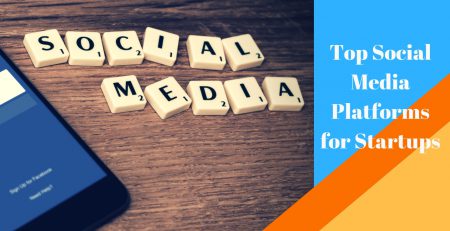Types of Marketing Strategy
Before starting with different types of marketing strategy, we first need to know what Marketing Strategy is.
A Market Strategy is a roadmap to achieve a sustainable goal and overall business plan to reach the target audience for the product or services. Strategic Planning involves an analysis of the market and focuses on the right things to achieve the maximum potential business. It is the ultimate tool to engage your customers and leads them to purchase your product.
Well, in this post I have pinned down 20 strategies to promote the business and services.
20 Types of Market Strategy for your business
These strategies give you internal knowledge about what your organization cares about and who they want to help in the world.
-
B2B Marketing
It is also known as business to business marketing. Here, one business markets its product and services to other business or organization. This marketing tends to be more informational and straightforward. In the modern time, B2B means buying stakeholder by selling with accurate, relevant and personalized information of buyers.
Firstly, you must develop a vision along with defining the right market and identify B2B tactics to run campaigns.
-
B2C Marketing
B2C stands for business to customer marketing; it generally refers to convert customers into buyers as aggressively and consistently. The main objective in B2C marketing is to directly attract customers with offers, special deals, discount, sale on product and vouchers. These tempt help to engage customer more and more both offline and online.
-
Conversion Rate Marketing
Conversion Rate means the proportion of potential visitors who performed the desired action by buying a product, calling for information or filling a form. It is fundamental to improve your return on investment and optimize results from the budget you have spent on online business. Conversion Rate Marketing is most of the digital marketing which shows how much sales get generated and what avenues are giving the best.
-
Direct Marketing
Direct marketing refers to directly communicate with customers via text, email, fliers, and other promotional materials. But it does not involve advertisement on the web or television of the product. it allows small business to market their services without any budget.
-
Content Marketing
If you have a website, then you must have a fair knowledge of how content can attract and engage customers. Any type of content you publish from your website, from landing pages or blog posts drives organic traffic from the search engine. To develop a content which covert visitor into loyal ones requires a strategy, this includes the schedule of publishing content and updating on time.
-
E-mail Marketing
E-mail marketing conveys a direct message to the audience and tied them with your business. You can run E-mail campaigns which contain educational content, informational content related to the product and services. Many successful businesses are still depended on e-mail marketing as it’s a primary way to connect with buyers.
-
Social Media Marketing
It’s the most effective way of marketing strategy for startups with low investment budget. Here, you can run campaigns on popular platforms such as Facebook, Twitter, Instagram, LinkedIn and some more. Here, you can improve your chances by creating brand awareness. Use lots of visual imagery photos and video.
-
Inbound Marketing
Inbound Marketing helps you to develop positive relationships with target customers without spending much money. You can start this marketing strategy with publishing content for free, build a presence on the web and contact target customer.
Analyze the audience interest and check buyers persona before contacting them which temp to purchase your product or services.
-
Internet Marketing
Internet Marketing is also called Online Marketing. Generally, it’s the process of marketing a brand or product over the internet using tools. This marketing strategy is beneficial for startups to drive traffic, generate leads or sales. It includes paid ads, email campaigns and social post to do marketing.
-
Outbound Marketing
This is the oldest way to do marketing for your business or startups. Many great businesses are still using this marketing strategy to seek potential customers. It includes activities such as trade shows, seminars and organized cold calling.
-
Pay-per-click Marketing
Pay per click is also known as cost per click marketing is a way to use search engine advertising to generate clicks. In this strategy, you have to pay an advertiser to publish whenever the ads get clicked. You might have seen those sponsored ads on Google’s search result page and marked with a green label. Research shows that people click on these paid ads more often and they don’t really mind. It generates better results over ROI.
-
Post Click Marketing
It’s a practice that aims at improving sales and marketing results by focusing on website visitors when they perform activities such as pay per click advertising, HTML e-mails and paid ads.
Post click marketing encourages a customer to take the desired action such as requesting information, registering their details or making an online purchase.
-
Search Engine Marketing
Search Engine Marketing is the practice of marketing a business on popular search engines such as Google and Bing. SEM works as a challenge to drive your website or blog into the top results in the search engine results pages (SERPs). This marketing strategy only depends on strong keyword research and great content to take the top places. It also offers advertisement opportunity to put the paid ads in front of the customers to motivate them.
-
Cloud Marketing
Cloud marketing is the new way of marketing which allow organizations to promote their goods and services online. It can save time and cost to market online. As it only applicable through integrated digital experiences for every individual user.
-
Analytical Marketing
It generally means an evaluation of data derived from marketing campaigns through different channels such as email or social media. Analytical marketing provides information that businesses in any industry can use to their advantage. This marketing can help you to increase sales or brand awareness. This also helps to collect relevant data from insights of different social platforms and track website followers who visit it more often.













Leave a Reply